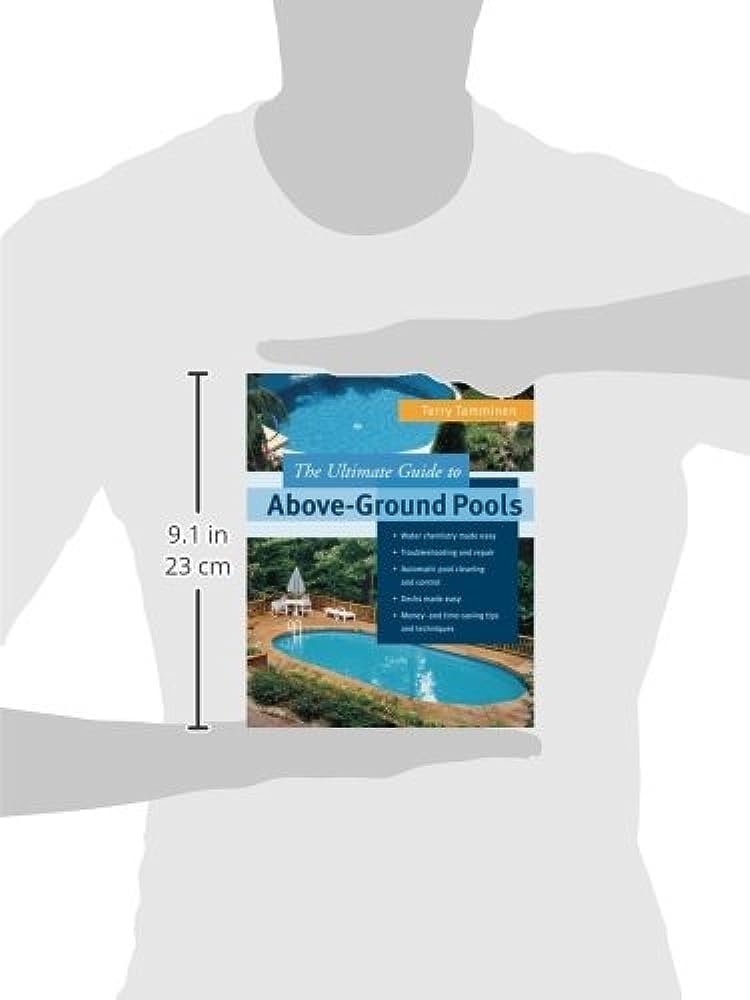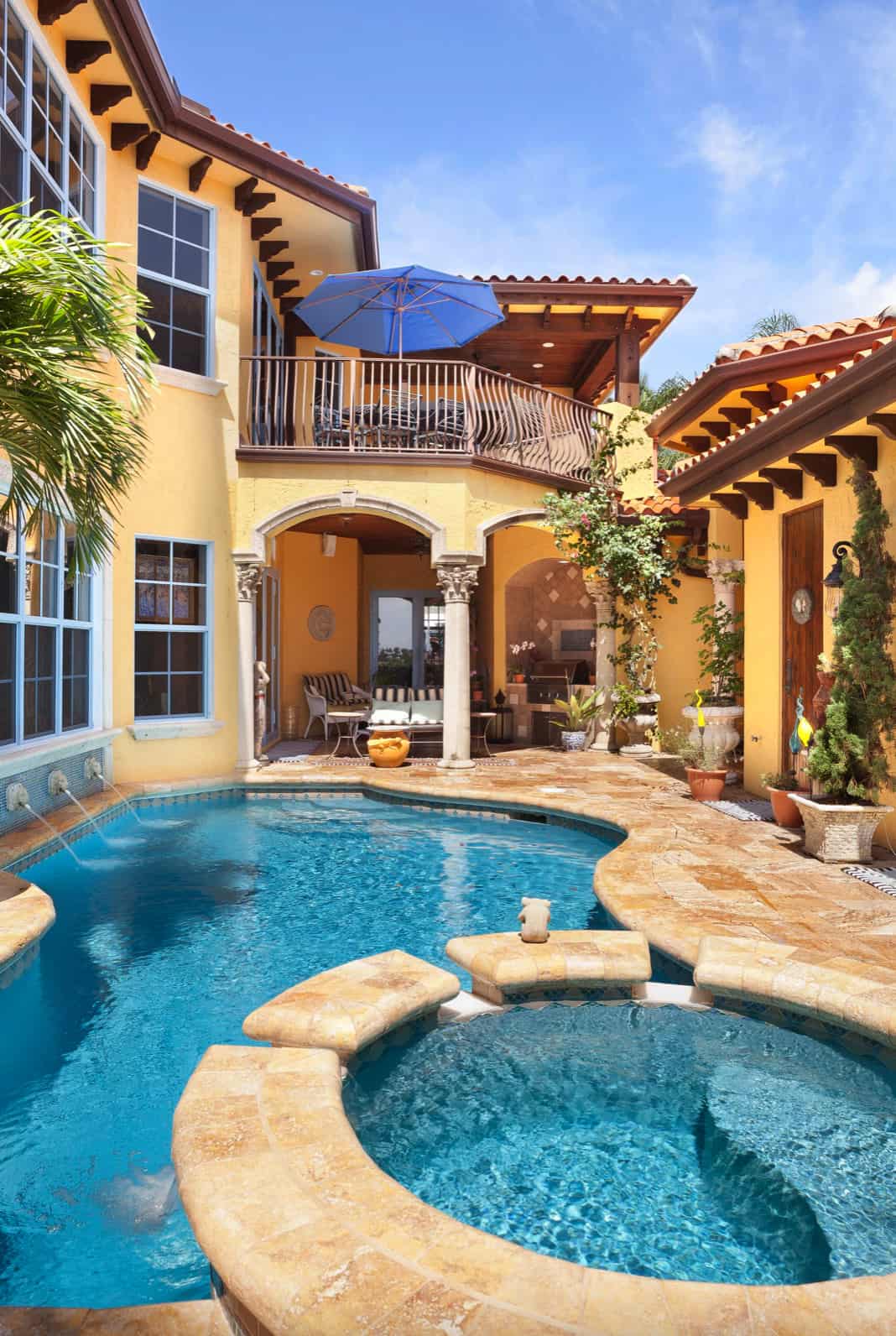Are you tired of spending too much money on pool maintenance? A pool timer can be the answer you’ve been looking for. With prices starting as low as $12, investing in a pool timer can save you money in the long run. In this article, we will break down the costs associated with pool timers, from average prices to installation and maintenance expenses. By the end, you’ll have a clear understanding of the value that pool timers can bring to your pool maintenance routine.
Key Takeaways
- Pool timers have a range of prices, starting from $12 for basic models, with higher-end timers costing up to $150.
- Average installation costs range from $30 to $100, depending on the complexity of the timer and the hourly rate of the installer.
- Pool timers require periodic maintenance and may need repairs, with average repair costs ranging from $20 to $100.
- Pool timers are a worthwhile investment as they save money on energy bills, extend the life of pool pumps, and make pool maintenance easier and more convenient.
Types of Pool Timers
Digital or smart timers are more expensive due to additional features and ease of use. There are several types of pool timers available on the market. The most basic type is the analog timer, which uses a mechanical dial to set the on and off times for the pool equipment. Analog timers are the least expensive option and are relatively simple to operate.
Digital timers, on the other hand, offer more advanced features such as programmable schedules, remote control capabilities, and the ability to adjust settings from a smartphone or tablet. These additional features make digital timers more convenient and user-friendly. The average cost of a pool timer can range from $20 to $100, depending on the specific features and brand choices. The higher-end timers with more advanced features can cost up to $150. Now let’s dive into the average costs of pool timers.
Average Costs of Pool Timers
You can find pool timers at a range of prices, starting from $12 for basic models. However, the price of a pool timer can vary depending on specific features and brand choices. Here is a breakdown of the average costs of pool timers:
- Basic models: These affordable timers can cost between $12 and $20. They offer simple on/off scheduling without any additional features.
- Digital or smart timers: These timers cost more, ranging from $20 to $100. They provide advanced features such as programmable schedules, remote control, and compatibility with smart home systems.
- Higher-end timers: If you’re looking for top-of-the-line options, you can expect to pay up to $150. These timers offer additional features like pool temperature sensors, pool light timers, and spa timers.
Remember that while the initial price of a pool timer is important, it’s also crucial to consider the long-term savings and benefits it can provide.
Installation Expenses for Pool Timers
Installing a pool timer can be done by most pool owners without special skills or tools. To start the installation process, turn off the power to the pool pump and locate the electrical panel. Remove the panel cover and identify the circuit breaker that controls the pool pump. Turn off the breaker to ensure safety during the installation. Next, determine the appropriate location for the timer and mount it securely. Connect the wiring according to the manufacturer’s instructions, ensuring that all connections are tight and secure. Once the wiring is complete, turn on the power and test the timer to ensure it is functioning properly. With the installation complete, you can now enjoy the benefits of a pool timer, such as energy savings and convenience. Transitioning into the next section about maintenance and repair costs for pool timers, it is important to note that regular maintenance and proper care will help prolong the lifespan of your pool timer and minimize the need for repairs.
Maintenance and Repair Costs for Pool Timers
To ensure the longevity of your pool timer, regular maintenance and proper care are essential. Here are some important tips for pool timer maintenance:
- Battery checks: Periodically check the batteries in your pool timer to ensure they are functioning properly. Replace them as needed to avoid any disruptions in timer operation.
- Timer settings: Make sure to set the timer correctly to align with your pool’s schedule. This will help optimize energy usage and ensure that your pool operates efficiently.
- Cleaning and inspection: Regularly clean your pool timer to remove any dust or debris that may accumulate. Additionally, inspect the timer for any signs of wear or damage, such as loose connections or corrosion.
Benefits of Installing a Pool Timer
Installing a pool timer offers numerous advantages, such as energy savings, extended equipment lifespan, and improved convenience. By automating the operation of your pool equipment, you can optimize energy usage, resulting in lower energy bills. Pool timers allow you to set specific schedules for your pool pump and other equipment, ensuring they only run when necessary. This not only reduces energy consumption but also extends the lifespan of your equipment by preventing unnecessary wear and tear. Additionally, pool timers provide convenience by eliminating the need for manual operation and monitoring. You can enjoy the benefits of a well-maintained pool without the hassle of constantly adjusting equipment settings. Overall, the benefits of installing a pool timer far outweigh the initial cost, making it a worthwhile investment for pool owners seeking energy efficiency and convenience.
Long-Term Savings With Pool Timers
By installing a pool timer, you can achieve long-term savings in both energy bills and the lifespan of your pool pump. The timer allows you to schedule when your pool pump operates, ensuring it only runs during necessary times. This reduces energy consumption and extends the life of the pump, ultimately saving you money in the long run.
Energy Bill Savings
You can save money on your energy bills by using a pool timer to efficiently schedule your pool pump’s operation. A pool timer allows you to control when your pool pump is running, ensuring that it operates during off-peak hours when electricity rates are lower. This can result in significant savings over time. Here’s how a pool timer can help you achieve pool energy savings:
- Reduced runtime: By setting specific times for your pool pump to run, you can avoid unnecessary operation during periods when the pool is not being used. This helps to minimize energy consumption and lowers your energy costs.
- Off-peak scheduling: Pool timers allow you to take advantage of off-peak electricity rates, which are often cheaper compared to peak hours. By running your pool pump during these times, you can save money on your energy bills.
- Consistent scheduling: With a pool timer, you can establish a consistent schedule for your pool pump’s operation. This ensures that your pool water remains clean and properly circulated without wasting energy by running the pump for extended periods.
Implementing a pool timer is an effective way to achieve pool energy savings, reducing your energy costs while maintaining the cleanliness and circulation of your pool water.
Extended Pump Lifespan
Using a pool timer helps extend the lifespan of your pool pump by reducing the amount of time it needs to run. By installing a pool pump timer, you can set specific times for your pump to turn on and off, ensuring it runs only when necessary. This not only saves energy but also reduces wear and tear on the pump. Pool pump timers are designed to be precise and reliable, allowing you to schedule multiple on/off cycles throughout the day. By reducing the running time of your pool pump, you can significantly increase its lifespan and save on maintenance and replacement costs. Investing in a pool pump timer is a smart choice for any pool owner looking to prolong the life of their equipment.
Recommendations for Pool Timer Brands
For top pool timer brands, consider options like Intermatic, GE, and Honeywell, which offer a range of features and price points. When it comes to pool timer programming, these brands provide user-friendly interfaces and intuitive controls. Here are three reasons why these brands are recommended for pool timer programming:
- Wide range of programmable options: Intermatic, GE, and Honeywell timers offer a variety of programming options, allowing you to set specific schedules for your pool equipment. From daily on/off cycles to multiple settings for different days of the week, these timers provide flexibility to meet your needs.
- Easy-to-use interfaces: These brands prioritize user experience with their intuitive interfaces. Their displays are clear and easy to navigate, making it simple to program and adjust settings. You won’t have to struggle with complicated menus or confusing buttons.
- Reliable performance: With a focus on quality and durability, Intermatic, GE, and Honeywell timers are known for their reliability. You can trust that your programmed schedules will be executed accurately, ensuring efficient operation of your pool equipment.
When it comes to pool timer programming, these brands offer the features and reliability you need for a hassle-free experience.
Frequently Asked Questions
Are Pool Timers Compatible With All Types of Pool Pumps?
Yes, pool timers are compatible with most types of pool pumps. They can be easily installed by the pool owner or a professional. Pool timers come in a range of prices, starting from $12 for basic models. Digital or smart timers cost more due to additional features and ease of use. The average cost of a pool timer is between $20 and $100, depending on the specific features and brand choices. Higher-end timers can cost up to $150.
Can Pool Timers Be Used for Other Outdoor Appliances Besides Pool Pumps?
Yes, pool timers can be used for other outdoor appliances besides pool pumps. Pool timers are designed to control the operation of any electrical device, so you can use them for things like outdoor lights, sprinkler systems, or even pond pumps. By using a pool timer, you can easily schedule the on/off times of these appliances, saving energy and adding convenience to your outdoor space. Just make sure to check the electrical requirements and compatibility of the appliance with the pool timer before installation.
Are There Any Additional Costs Associated With Using a Pool Timer, Such as Increased Electricity Usage?
Using a pool timer can actually help you save on electricity usage, rather than increasing it. By setting specific times for your pool pump to run, you can ensure it operates only when necessary, reducing unnecessary energy consumption. Pool timers also help extend the life of your pool pump, saving you money on repairs and replacements in the long run. So, while there may be some initial costs associated with purchasing and installing a pool timer, the potential energy savings make it a worthwhile investment.
How Often Should Pool Timers Be Checked for Battery Maintenance?
To properly maintain your pool timer’s battery, it is recommended to check it at least once every six months. This ensures that the battery remains in good condition and the timer functions optimally. However, factors such as the type of timer and its usage may require more frequent checks. Regular battery maintenance is crucial to prevent any disruptions in your pool timer’s performance and to maximize its lifespan.
Can Pool Timers Be Programmed to Turn on and off at Different Times on Different Days of the Week?
Yes, pool timers can be programmed to turn on and off at different times on different days of the week. This feature allows you to customize the operation of your pool pump based on your specific needs and schedule. By programming different settings for each day, you can ensure that your pool is properly filtered and maintained without having to manually adjust the timer every day. This convenience adds to the overall benefits of using a pool timer and makes pool maintenance easier and more efficient.
Conclusion
In conclusion, investing in a pool timer can provide significant benefits for pool owners, including energy savings and extended pump life. The average cost of a pool timer ranges from $20 to $100, with higher-end models priced up to $150. Installation costs can vary depending on whether the pool owner chooses to install it themselves or hire a professional. Maintenance and repair expenses should also be considered. Overall, pool timers offer a cost-effective solution for pool maintenance, with potential long-term savings.






